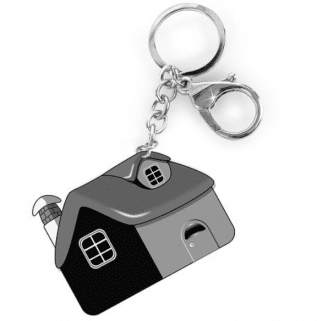A property chain — what is it, why is it so fragile, and how do you avoid getting caught up in one. We explain all in our latest blog.
What is a property chain?
A property chain is a line of buyers and sellers who are linked together since they are buying and selling property from one another.
Why do property chains break?
Property chains are notoriously fragile — it only takes one element to falter and the whole thing comes crashing down.
The most common reasons are:
- Finance: a buyer fails to secure a mortgage and therefore can’t proceed with the agreed sale price.
- Deadlock: a seller can’t find another property to buy (or even rent) within the timelines required by the buyer.
- Change of heart: a buyer or a seller simply gets cold feet and changes their minds. Or their circumstances change — they get ill, lose their job, or split with a partner.
- Gazumping: when a seller finds a buyer that is willing to pay more for their property.
- Gazundering: when a buyer reduces their offer at the 11th hour.
- Surveys: can reveal unexpected issues with a property that need to be fixed. If the buyer and seller can’t agree on who should pay for the fixes, then the whole thing can flop.
How much does it cost?
When a property chain breaks down, it’s back to the drawing board and the process has to start from scratch. Apart from adding to the stress of the process, it’s also costly:
Buyers:
- Legal fees and surveys: the all-singing all-dancing home buyers report can cost hundreds if not thousands of pounds. The only saving grace as a buyer is that in doing your due diligence, you avoid being left with a potentially crumbling property on your hands despite survey costs leaving a large hole in your pocket.
- Mortgage fees: It’s not just monthly interest payments that need to be considered when taking out a mortgage, there are also sign up fees. And those fees are non refundable— whether the sale goes through or not. Booking fees, arrangement fees and valuation fees all add up and usually cost between £1,000 to £2,000 in total.
Sellers:
- Legal fees: there’s no escaping legal fees. Whether you’re a buyer or a seller, you have to instruct a solicitor once an offer is agreed.
- Pre-sale work: first impressions count— so before listing a property on the open market, most people tend to spend a large sum of money getting their home ready and looking its best. Decorating the house from top to bottom, renovating the kitchen, or even landscaping the garden doesn’t guarantee that the property chain will stay intact though, meaning all the effort and cost could be in vain.
- Online estate agents: on paper, they’re cheaper than their traditional counterparts, but in reality they could cost a lot more. Many online estate agents take an upfront fee — that means if you switch agents when a sale falls through, then you’ll have a new fee to pay.
- Works for the buyer: the survey can reveal problems that need to be fixed, and often a seller will take on board the costs rather than reduce the overall selling price. If work starts before legally-binding contacts are in place and the chain breaks down, then it means hassle and expenditure for nothing.
How to avoid property chain issues?
The million dollar question.
It’s not easy an easy issue to navigate as illustrated by the fact that almost half of all sales in the UK fall though often due to chain fragility. There are things you can do to minimise the risk though:
Buyers
- Finance: be honest about your financial position, so that you’re not disappointed later down the line when you can’t get a mortgage secured. It’s always advised to have a mortgage in principle before you even start looking, so that you’re only looking at properties that you know that you can afford.
Sellers
- Choose a buyer carefully: if you’re getting plenty of offers and have the luxury of choice, then a first-time buyer is a solid option since they aren’t in a chain themselves.
- For a guaranteed sale that eliminates the fragility of a property chain, then your best bet is a property cash buying company. They have immediate access to funds and can usually exchange within 7 days (or whatever timelines that you need to work to). Most will buy as seen and cover your legal costs keeping the process hassle free. They do tend to offer slightly less than market value as they’ll be looking to make a profit from the onward sale— but when you consider the cost implications of a sale falling through, it’s a compromise that more and more people are choosing to make. If you live in Hull or East Yorkshire and want to sell your home, then call our friendly team on 01482 655346 and they will run you through your options.

